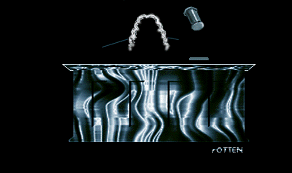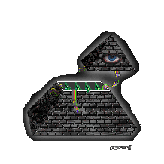

February 9, 1995
The Honorable Manuel L. Real
United States District Judge
United States Courthouse
312 North Spring Street
Los Angeles, CA 90012
Dear Judge Real:
As part of the plea agreement in this case, I signed a declaration
setting out the facts of the crimes to which I have pleaded guilty.
On the subject of my motives in committing these acts, however, the
declaration is silent. I would like to take this opportunity to explain
my actions and motives to the court.
My interest in the phone system began when I was young, 12 or 13 years
old, and at that age the attraction was almost spiritual. I knew that the
telephone network reached into virtually every home and business in the
country, and into every country in the world. It had existed decades before
I was born, and would continue to exist long after I was gone. To me, a
phone line was a connection to something omnipresent and eternal.
As a teenager, I began my explorations in the engineering library at
a local university, where I poured over books and technical journals. When
this was no longer enough to satisfy my curiosity, I began rummaging through
the dumpsters at nearby phone company buildings, retrieving discarded manuals,
computer printouts, and bits of equipment. With the help of these artifacts,
I began to piece together a mental image of the network. To add to my mental
map I exchanged knowledge with other hobbyists, made pretext telephone calls
to phone company offices, and ultimately gained unauthorized access to a phone
company computer system.
In 1983, when I was 17, I retired from my pass-time and enrolled in a number
of courses at a local community college. Sometime afterwards, I applied for
admission at a private computer school. Although I did well on the entrance exam,
I was turned away from their computer programming classes because of my lack of
formal post-high school education. At that point, I set my sights on obtaining a
job in the computer field where I could develop my skills on-the-job, while
earning a living.
In October 1984, I moved to Northern California to take a job as a computer
operator. I did well and received my first raise after three months. During
a meeting with my supervisor, he surprised me by using an obscure telephone
term that I recognized from my days as a phone hacker, now more than a year
behind me. I asked him about it, and it soon developed that he had the same
kind of interest in the phone network that I had, and had pursued it in much
the same way. We began swapping war stories; then he brought in some manuals.
My interest in telephony was rekindled and I began my explorations anew - this
time with the help and guidance of my boss.
In February 1988, my activities caused me to become the subject of a joint
FBI/Pacific Bell computer hacking investigation. Although no charges were filed
against me at the time, Pacific Bell Security contacted my employer and I was
fired. Working in the computer industry was all that I knew and the loss of my
job was a devastating blow. Under the circumstances, my prospects for new
employment in the computer industry seemed bleak. In May 1988, I moved back
to Los Angeles.
Back in Los Angeles, I turned to my hobby to fill the hole left in my life
by the death of my career. I missed the challenges of my job - chances to
solve complex problems. By its very nature the telephone network provided what
I needed.
I found the network to be a complex, fractal landscape; intricate and diverse.
One could spend hours studying the workings of a telephone switching system, or
spend just as long on a single component of that system. One segment of the
network might run off the latest in high-speed digital computers, while another
runs on antique electro-mechanical equipment that predates the invention of the
transistor. It was in an effort to understand the telephone network and to use
it in new and novel ways that I conducted most of the physical and electronic
intrusions to which I have pleaded guilty.
But my intrusions, particularly the physical ones, were more than just ways
of gaining knowledge. I think, in a way, part of me still saw the network as
something mystical and arcane. Exploring a telephone switching center, immersed
in the sights and sounds of rooms full of equipment, was a kind of transcendence
for me. A chance to become part of something greater than myself.
On a more practical level, the knowledge I gained of the phone network, and
my access to Pacific Bell computers, allowed me to increase my odds of winning
radio stations phone-in contests substantially. I played these contests in part
because it was a challenge and it allowed me to engage in the sort of complex,
coordinated efforts that I missed since the loss of my career. I also saw it,
at the time, as a "victimless" way of making money with my access -
though I knew I was breaking the law by doing it.
While the Northern California case continued, I became concerned that I,
my friends, or my family, might be subject to surveillance by either Pacific Bell's
security department or the FBI. This concern prompted me to actively research the
physical and electronic surveillance methods used by these agencies. It was while
conducing this research that I stumbled (via my computer) across the FBI's wiretap
of a local restaurant. My access to this information was illegal and unauthorized,
but I did nothing to compromise the wiretap or the related investigation.
My three and a half years in custody have given me a lot of time to think; a lot
of time for self-reproach and introspection. It was tempting, at first, to compare
myself to other hackers who have used their abilities in more malicious and destructive
ways than I, and to say, "I'm not so bad." But the truth is, there are many people
who have channeled their curiosity, energy, and impulses for risk-taking into
socially and legally acceptable directions. I realize now that it is by this standard
that I must be judged. I chose to use my interest to break the law, and I must now
live with the consequences of that decision.
Respectfully,
Kevin L. Poulsen
